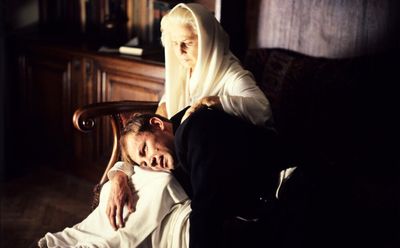Following a screening arranged for 5 pm, critic and film expert Saeid Aqiqi will deliver a speech on the relations between art and power.
Szabo and Peter Dobai co-wrote the film based on a novel of the same title by German writer Klaus Mann.
Set in early-1930s Germany, the story of the film is about Hendrik Hoefgen, a passionate stage actor who craves center stage. After years spent slogging it out in provincial theaters, he’s grown sufficiently desperate that when the Nazi party effectively offers to make him a star, he doesn’t hesitate. Great roles and plenty of praise accumulate quickly, and Hendrik revels in his success. He dreams of ultimately playing Mephisto, and to that end blithely overlooks the profound moral compromises of his situation.
Starring a mix of German and Hungarian-speaking actors, the film was a co-production of Hungarian, Austrian and West German studios.
It premiered in Budapest on February 11, 1981, and received widespread acclaim from critics, winning the Academy Award for Best Foreign-Language Film, the first Hungarian picture to do so.
Klaus Maria Brandauer’s performance earned him multiple accolades, including BAFTA and German Film Award nominations, and launched his film career.
The film also won the award for best screenplay and FIPRESCI Prize at the Cannes Film Festival.
“Mephisto” was the highest-grossing Hungarian film in the United States and Canada with a gross of $3.9 million.
Source: Tehran Times

